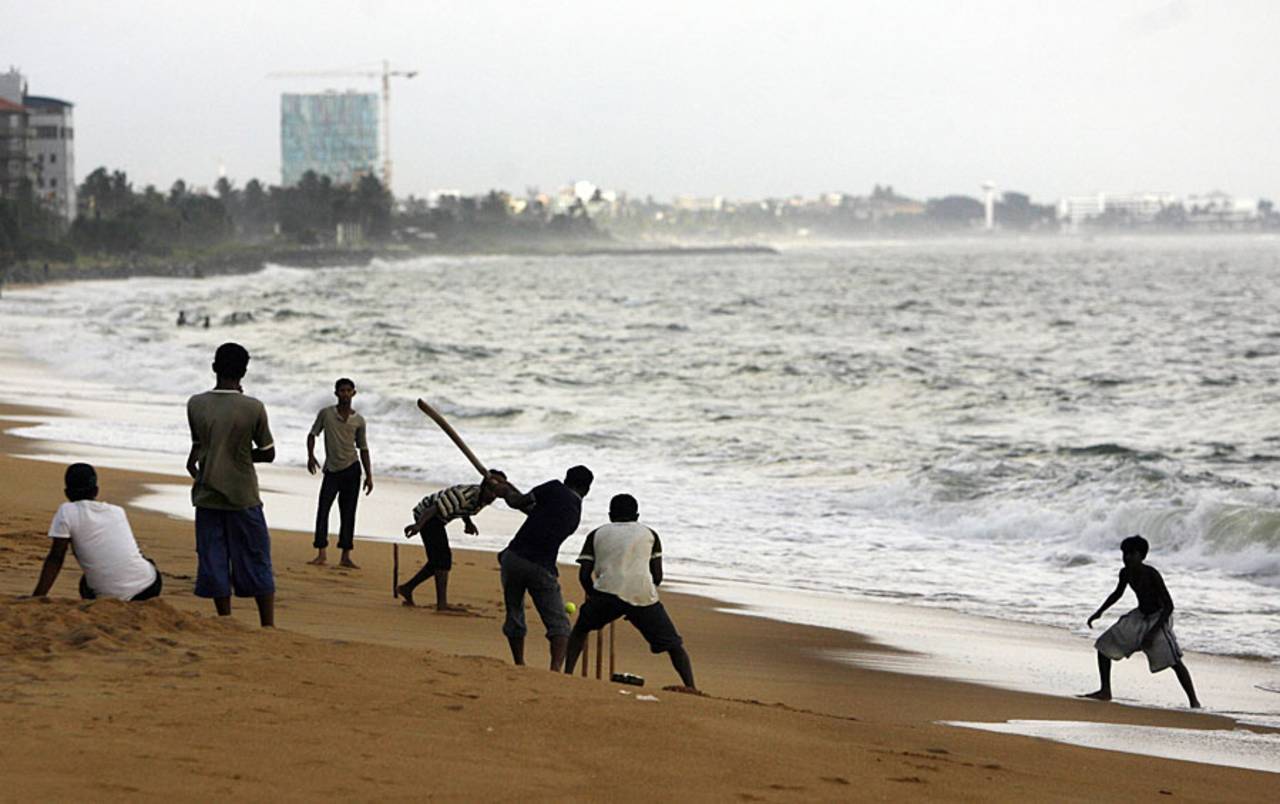Dear cricket snobs...
It doesn't matter if T20 is "real cricket" or not. What matters it that it pays the bills
Andrew Hughes
May 14, 2014, 5:04 AM

A committee comprising former players and experts has been appointed to decide if this is "real cricket" • AFP
When cricketers write down their thoughts, we should all pay attention. Obviously this doesn't include their Twitter dribblings. Perhaps somewhere out there among the bat-waving, ball-flinging fraternity there lurks a potential Twitter Shakespeare, a part-time legspinner, pinch-hitter or reserve wicketkeeper, who may one day open our eyes to the glorious and profound possibilities inherent in the 140-character form.
Thus far, alas, such a hero has yet to emerge and the collective literary efforts of the planet's cricketers seem to be an experiment set up to test the infinite-monkey theorem.
So I should qualify that opening statement. When former world-class cricketers possessing the wisdom derived from spending half a lifetime learning how to do something, and who have, along the way, picked up the ability to string a couple of sentences together, write down their thoughts, we should all pay attention.
Naturally I read Martin Crowe's ESPNcricinfo piece about T20 cricket with interest. When I was young, Crowe was a colossus, an immovable piece of furniture in the living room of my cricket imagination. Other New Zealand names came and went, but Crowe, M, along with Hadlee, R arrived on my scorecard without my even having realised I'd written down their names. When a man like Martin Crowe opines, we take note:
"T20 is a game initially derived from real cricket... "
"It's not really cricket and it never will be."
I was inclined to take Martin Crowe's word for it, but still, this "real cricket" business had me puzzled. What is real cricket, exactly? Is it timeless cricket? Five-day cricket? Four-day cricket? Three-day cricket? Fifty-five overs? Forty overs? Single-wicket? Was the three-day County Championship less "real" than the four-day County Championship? When thousands turned up to watch a one-day game between Kent and All-England at the Artillery Ground in 1744, were they watching real cricket?
Over the last 300 years, everything about our game has changed: rules, equipment, format, length, hairstyles, but the one thing that hasn't changed is the contest between a person with a bat and a person with a ball. That is cricket. The rest is mere detail.
Martin Crowe isn't the first to trot out this line about real cricket. I know many people who agree. Some of them are apparently rational, pleasant citizens, able to wander at large in the community, manage their own affairs, vote in elections and so on, without causing a danger to themselves or others. Yet on the subject of cricket they remain adamant. They know what they like and they know proper cricket when they see it.
But if T20 is not real cricket, what exactly is it? And why do so many people want to watch it, if it isn't "real"? Martin Crowe has the answer:
"T20 is the place to try new stuff, with entertainment in mind."
Ah, that dirty word: "entertainment". Entertainment is what the poor plebs who buy their tickets to IPL games are after, the fools. They part with their hard-earned money in exchange for the temporary fix of entertainment. Connoisseurs of real cricket wouldn't fall for anything so tawdry. Real cricket fans know that "real cricket" is about handing over large sums of money with no promise of any entertainment whatsoever.
The problem for the real cricket enthusiasts is that entertainment is more than just the gaudy icing on the cricket cupcake. Entertainment now pays the bills. Why do thousands of people worldwide attend cricket matches? For the good of their souls? Because they can't get a good nap at home? I suggest they come in the hope of entertainment.
No entertainment means no crowd. No crowd means no sponsors, no television coverage, and no money. No money means no more big, fat central contracts. How many current and former cricketers would be prepared to play for free, in front of near-deserted stands, in matches ignored by the media, in order to preserve and support real cricket?
In many Test-playing nations, real cricket is not financially viable. So instead of being sniffy about the IPL, perhaps cricket snobs should be asking how they can make real cricket more entertaining, and sooner rather than later, lest real cricket go the way of Real Tennis.
Andrew Hughes is a writer currently based in England. He tweets here